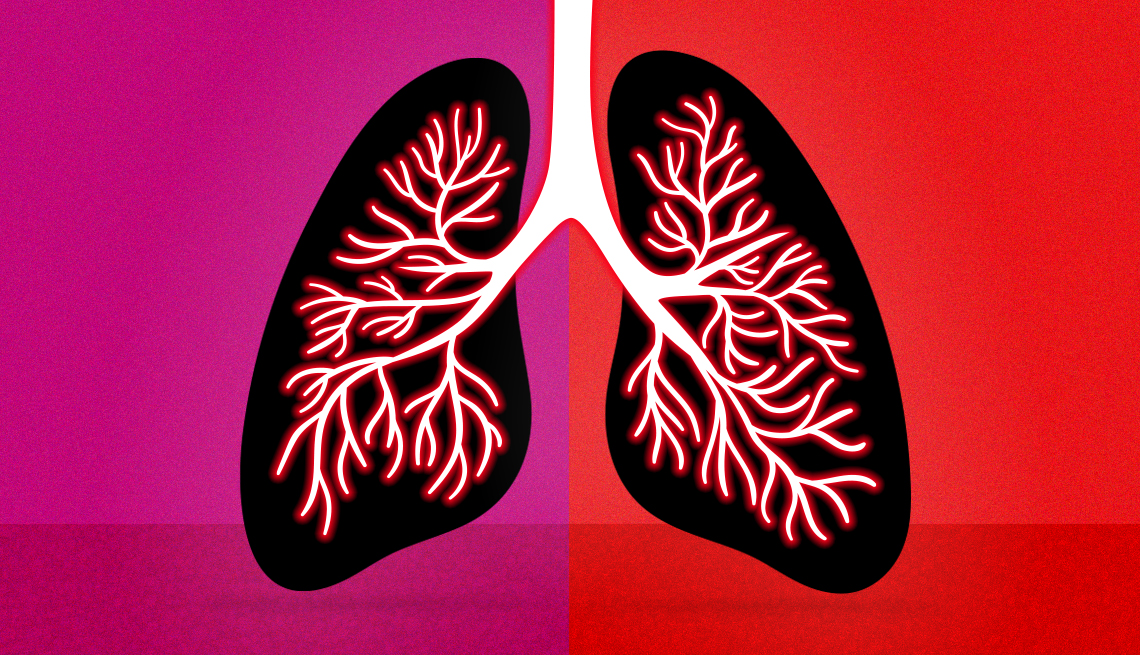Bronchitis vs. Pneumonia: Which Is It? - AARP

Just know that with bronchitis, recovery can take time, especially when it comes to getting rid of the cough. "It's not going to be a day-by-day improvement; it's going to be a week-by-week improvement," Kalsi says.
Acute vs. chronic bronchitis
Acute bronchitis is what's commonly called a chest cold. According to Mayo Clinic, symptoms usually improve within a week to 10 days, though the cough can persist for weeks. Chronic bronchitis is long-term inflammation of the airways and is one of the more common lung diseases that contribute to COPD (chronic obstructive pulmonary disease).
What is pneumonia?
While bronchitis affects the upper airways, pneumonia develops lower down in the lungs. Like bronchitis, it also causes inflammation and fluid buildup.
Viruses, bacteria and fungi can all cause pneumonia. In the U.S., some of the more common causes of viral pneumonia include influenza, RSV, COVID-19 and rhinovirus (the predominant cause of the common cold), according to the CDC. When it comes to bacteria, pneumococcus, which causes pneumococcal disease, is often to blame.
Like bronchitis, pneumonia can trigger a bad cough that may come with mucus. But other symptoms of pneumonia tend to be more serious and can include:
- Fever, shaking and chills
- Shortness of breath
- Rapid, shallow breathing
- Chest pain
- Loss of appetite
- Fatigue
- Confusion, especially in older adults
With pneumonia, "you can feel much more run-down, fatigued, short of breath," says Kalsi, who says that a chest X-ray is typically used to diagnose pneumonia. "It can be much more intense." According to the American Lung Association, pneumonia causes more than 1 million hospitalizations and more than 50,000 deaths each year in the U.S.
How is it treated?
That depends on what's causing the infection. If it's bacterial pneumonia — a blood test or sputum test can help identify the cause — your doctor may prescribe an antibiotic. And antifungals can help treat pneumonia caused by a fungal infection.
Viral pneumonia usually isn't treated with prescription medication. However, your doctor may recommend over-the-counter cold medicines or fever reducers to help with symptoms.
Don't ignore severe signs
A fever that's higher than 101 degrees F. is concerning and is a sign you need to see a doctor, says Anthony Szema, M.D., a physician who specializes in pulmonary diseases at Northwell Health in Long Island, New York. The same goes if you are short of breath, or if your breathing worsens, or if you are extremely fatigued or feel dehydrated.
Comments
Post a Comment